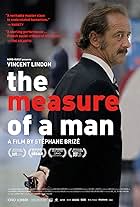Moved by the plight of the mother of her daughter's school friend, a young judge facing an incurable disease teams up with an older colleague in order to fight against financial companies th... Read allMoved by the plight of the mother of her daughter's school friend, a young judge facing an incurable disease teams up with an older colleague in order to fight against financial companies that exploit the poor.Moved by the plight of the mother of her daughter's school friend, a young judge facing an incurable disease teams up with an older colleague in order to fight against financial companies that exploit the poor.
- Awards
- 4 nominations
Photos
Yannick Renier
- Christophe
- (as Yannick Rénier)
- Director
- Writers
- All cast & crew
- Production, box office & more at IMDbPro
Storyline
Did you know
- TriviaThe character of Stéphane is inspired by real-life judge Etienne Rigal.
- SoundtracksOn Saturday Afternoons in 1963
Written and Performed by Rickie Lee Jones
Recorded on 22-12-1978
Released by Warner Bros (March 1979)
Featured review
Social commentary with a heart
Philippe Lioret is one of the rare sound technicians to have turned film director. And a pure technician he did not remain, becoming instead a full-fledged artist, slowly maturing from offbeat comedy maker ("Tombés du Ciel" [1993], "Tenue correcte exigée" [1997]) to successful painter of the passions ("Mademoiselle"[2001], "L'équipier"[2004]). A new step was taken in 2006 with "Je vais bien ne t'en fais pas", one of the most intense dramas ever filmed, which propelled him to the status of key figure of the French cinema. Lioret's following work, "Welcome", released three years later, a model of the committed film genre, confirmed the high hopes placed in the director, whose last two films managed to convince both audiences and film critics. In "Toutes nos envies", his latest work to-date, Lioret this time tries to synthesize the separate driving forces of his two masterpieces (intimate drama and social involvement) in a single story. On the personal tragedy side, he tells us the sad story of Claire, an idealistic judge in her thirties, married to a sweet husband and mother of two, who discovers to her dismay that she is struck by an incurable illness. As for sociological aspect of the movie, it lies the fight the young judge wages against revolving credit, and by extension, against the aberrations of ultra- liberalism.
Choosing to deal with a societal phenomenon through the eyes of a young woman of course allows identification to her and, through this process, easier understanding of a complex issue. But, taking as a heroine a young woman who can see herself dying was certainly not an obvious choice, the danger being of indulging in cheap melodrama. Fortunately, Philippe Lioret knows better than that : "Mademoiselle", "L'équipier", "Je vais bien..." and "Welcome" could have been tearjerkers ; they were not. Nor is "Toutes nos envies". Simply because for the director suffering elevates the person who fights it with dignity. Whereas in a mere tearjerker it is just an excuse for drawing crocodile tears from undemanding viewers ; and this at the expense of the characters, debased to the level of whiners. For that matter, he was quite right to offer the role to Marie Gillain, a charming actress who, although not used to playing such tragic characters, manages here to display a lot of conviction while at the same time showing welcome (pun not intended !) restraint. At once fragile and strong, fresh and grave, rebellious and warm, Marie Gillain joins the vibrant Sandrine Bonnaire and Mélanie Laurent in the pantheon of Philippe Lioret's heroines.
Claire, Philippe Lioret's engaging spokesperson, elegantly voices the writer-director's outrage at the way people in need of money are squeezed dry and driven to despair by lending organizations, thus making tremendous profit out of their poverty. This revolting situation is denounced from the outside by Claire but also experienced in her own flesh by Céline, a divorced mother and helpless victim of what can be called the new usurers (a very natural performance by Amandine Dewasmes).
A very skillful way to study the questions from all angles, from the theoretical legal point of view to the everyday practical one. So much so that, unless you are a loan shark yourself, you cannot but side with the victims of the system while capturing all its intricacies.
The direction is effective but without inadequate artistry, making good use of natural locations (Lyon, Valence, the Salagou Lake). The cast is superior, with Vincent Lindon as its male star. In "Toutes nos envies" he gives another of his superb performances as Stéphane, a judge who has seen it all and proves reluctant to take action but until, out of sympathetic friendship for Claire, he accepts to take over her mission.
A fine example of social commentary with a heart, "Toutes nos envies" has met its two fixed targets : to move viewers on the one hand and raise their awareness on the other.
Choosing to deal with a societal phenomenon through the eyes of a young woman of course allows identification to her and, through this process, easier understanding of a complex issue. But, taking as a heroine a young woman who can see herself dying was certainly not an obvious choice, the danger being of indulging in cheap melodrama. Fortunately, Philippe Lioret knows better than that : "Mademoiselle", "L'équipier", "Je vais bien..." and "Welcome" could have been tearjerkers ; they were not. Nor is "Toutes nos envies". Simply because for the director suffering elevates the person who fights it with dignity. Whereas in a mere tearjerker it is just an excuse for drawing crocodile tears from undemanding viewers ; and this at the expense of the characters, debased to the level of whiners. For that matter, he was quite right to offer the role to Marie Gillain, a charming actress who, although not used to playing such tragic characters, manages here to display a lot of conviction while at the same time showing welcome (pun not intended !) restraint. At once fragile and strong, fresh and grave, rebellious and warm, Marie Gillain joins the vibrant Sandrine Bonnaire and Mélanie Laurent in the pantheon of Philippe Lioret's heroines.
Claire, Philippe Lioret's engaging spokesperson, elegantly voices the writer-director's outrage at the way people in need of money are squeezed dry and driven to despair by lending organizations, thus making tremendous profit out of their poverty. This revolting situation is denounced from the outside by Claire but also experienced in her own flesh by Céline, a divorced mother and helpless victim of what can be called the new usurers (a very natural performance by Amandine Dewasmes).
A very skillful way to study the questions from all angles, from the theoretical legal point of view to the everyday practical one. So much so that, unless you are a loan shark yourself, you cannot but side with the victims of the system while capturing all its intricacies.
The direction is effective but without inadequate artistry, making good use of natural locations (Lyon, Valence, the Salagou Lake). The cast is superior, with Vincent Lindon as its male star. In "Toutes nos envies" he gives another of his superb performances as Stéphane, a judge who has seen it all and proves reluctant to take action but until, out of sympathetic friendship for Claire, he accepts to take over her mission.
A fine example of social commentary with a heart, "Toutes nos envies" has met its two fixed targets : to move viewers on the one hand and raise their awareness on the other.
- guy-bellinger
- Jun 27, 2012
- Permalink
Details
- Release date
- Country of origin
- Official site
- Language
- Also known as
- Все наши желания
- Filming locations
- Production companies
- See more company credits at IMDbPro
Box office
- Budget
- €8,500,000 (estimated)
- Gross worldwide
- $3,093,416
- Runtime2 hours
- Color
- Sound mix
- Aspect ratio
- 2.35 : 1
Contribute to this page
Suggest an edit or add missing content























